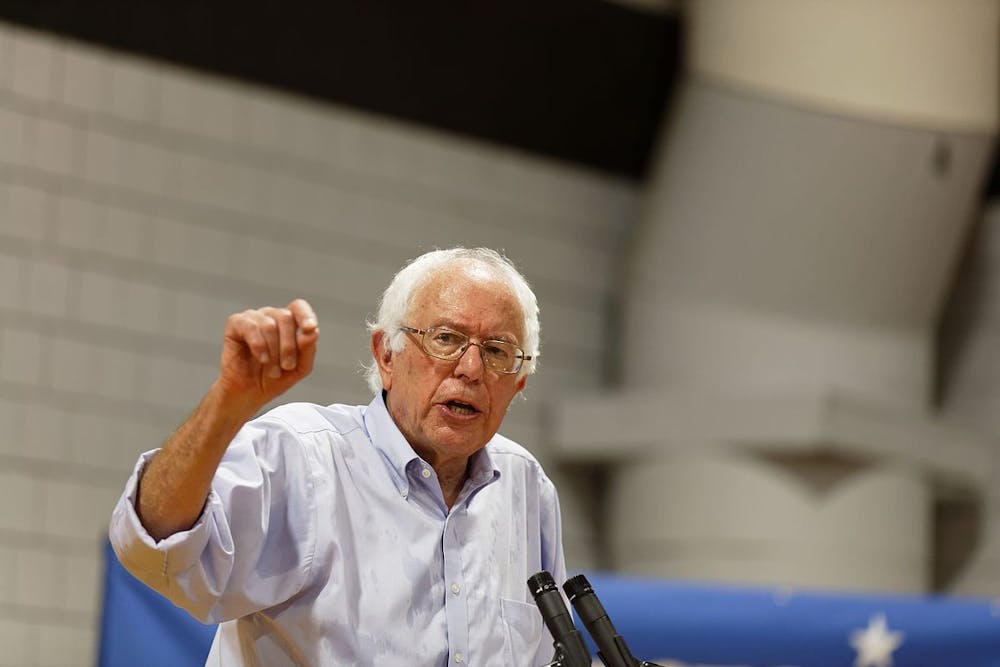Sen. Bernie Sanders has suffered yet another crushing set of losses in each of the three contested states — Illinois, Florida, and Arizona. These were following rough performances on Super Tuesday and Super Tuesday II, where former Vice President Joe Biden, Sanders’ primary opponent, dramatically expanded his lead in the delegate count. While supporters of Sanders’ campaign are quick to argue that Sanders is the best candidate to beat Donald Trump and better at addressing the needs and concerns of younger voters, the results of recent primaries suggest that this message fails to resonate with most Democrats.
Biden’s lead in the delegate count is nearly insurmountable. To win the Democratic nomination for President, a candidate must amass at least 1991 delegates, which are allocated based on the results of each state’s primary. As of March 17, Biden has attained a lead of over 300 delegates. Moreover, according to projections from FiveThirtyEight, Biden is projected to gather a lead of over 1000 delegates by the start of the Democratic National Convention, shattering the required threshold to become the party nominee.
In order to surpass Biden in the delegate count, the Sanders campaign would not only have to win a majority of the remaining states but do so with very large margins of victory. Some Sanders supporters are holding out hope for victories in states like Wisconsin, which he won by a substantial margin in the 2016 Democratic Presidential Primary over Hillary Clinton. However, if the past four weeks have been any indication of what is in store for future races, the trends from 2016, such as a Sanders victory in Michigan, do not necessarily apply to elections in 2020. Given that Sanders has virtually no momentum remaining, such a scenario is highly improbable. Without regard to political ideology, it is important for candidates to recognize the reality of their electoral landscape. At this point, with little to no mathematical chance of winning the nomination, it is in Sanders’ best interest to exit gracefully.
Beyond math, the confirmation of the Democratic Party’s nominee for president is beneficial for the health of the American political system. By exiting the race, Sanders would allow media attention to shift toward the general election. This will help facilitate the dissemination of information regarding the eventual nominees from both major parties. Moreover, a Sanders exit will provide much-needed clarity for the platform of Democrats in 2020, providing voters with the time and information necessary to make an informed decision in November.
From a financial standpoint, the prolonging of a campaign until the Democratic National Convention — a span of approximately three and a half months — can cost tens of millions of dollars. As a campaign that prides itself on acquiring funding primarily from individual small-dollar contributions, it is extremely irresponsible to stay in the race and continue to solicit and use donations from individual donors, especially amidst a global financial crisis. Instead of wasting valuable resources on a fruitless effort, it is in the best interest of the Sanders campaign to dedicate its reserves to supporting their eventual party nominee for the general election.
Still, supporters of Sanders maintain that his continued candidacy is essential to bring progressive issues and policy to the forefront of national politics. However, it is clear that the Sanders campaign has already realized its full potential, as Biden already adopted key plans from progressive candidates on issues ranging from student debt in education to bankruptcy reform. Moreover, younger national figures such as Rep. Alexandria Ocasio Cortez and Rep. Ilhan Omar will carry forward a similar progressive ideology for decades to come. By staying in the race, Sanders serves to only highlight the differences between the two candidates, making it less likely that Biden adopts any further progressive policies. Alternatively, by stepping aside, the two candidates will better be able to work together to clarify their differences and put forth a more cohesive platform for the Democratic Party.
The time for debate over ideology has passed, and the Democratic Party has all but chosen its eventual nominee. The Sanders campaign should recognize the challenges associated with pushing forward with a losing campaign and cut its losses. While his resolve is respectable — for the sake of advancement and the health of the American political system — Bernie Sanders must suspend his 2020 Presidential Campaign.
Neil Kothari is a Viewpoint Writer for The Cavalier Daily. He can be reached at opinion@cavalierdaily.com.
The opinions expressed in this column are not necessarily those of The Cavalier Daily. Columns represent the views of the authors alone.






